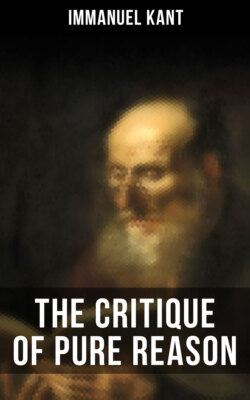Читать книгу The Critique of Pure Reason - Immanuel Kant - Страница 42
На сайте Литреса книга снята с продажи.
Observation. §§ 17
ОглавлениеThe manifold in an intuition, which I call mine, is represented by means of the synthesis of the understanding, as belonging to the necessary unity of self-consciousness, and this takes place by means of the category.21 The category indicates accordingly that the empirical consciousness of a given manifold in an intuition is subject to a pure self-consciousness a priori, in the same manner as an empirical intuition is subject to a pure sensuous intuition, which is also a priori. In the above proposition, then, lies the beginning of a deduction of the pure conceptions of the understanding. Now, as the categories have their origin in the understanding alone, independently of sensibility, I must in my deduction make abstraction of the mode in which the manifold of an empirical intuition is given, in order to fix my attention exclusively on the unity which is brought by the understanding into the intuition by means of the category. In what follows (§§ 22), it will be shown, from the mode in which the empirical intuition is given in the faculty of sensibility, that the unity which belongs to it is no other than that which the category (according to §§ 16) imposes on the manifold in a given intuition, and thus, its a priori validity in regard to all objects of sense being established, the purpose of our deduction will be fully attained.
But there is one thing in the above demonstration of which I could not make abstraction, namely, that the manifold to be intuited must be given previously to the synthesis of the understanding, and independently of it. How this takes place remains here undetermined. For if I cogitate an understanding which was itself intuitive (as, for example, a divine understanding which should not represent given objects, but by whose representation the objects themselves should be given or produced), the categories would possess no significance in relation to such a faculty of cognition. They are merely rules for an understanding, whose whole power consists in thought, that is, in the act of submitting the synthesis of the manifold which is presented to it in intuition from a very different quarter, to the unity of apperception; a faculty, therefore, which cognizes nothing per se, but only connects and arranges the material of cognition, the intuition, namely, which must be presented to it by means of the object. But to show reasons for this peculiar character of our understandings, that it produces unity of apperception a priori only by means of categories, and a certain kind and number thereof, is as impossible as to explain why we are endowed with precisely so many functions of judgement and no more, or why time and space are the only forms of our intuition.
